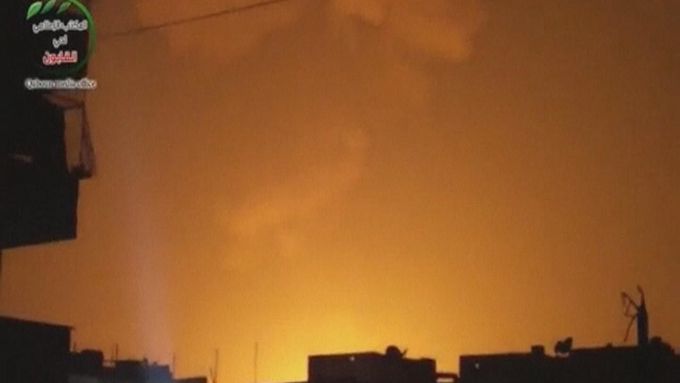Prague - "Chemical weapons cannot determine the outcome of a war. They only make somebody intervene in it or argue that there should be an intervention," said Colonel Jan Valo, former commander of a Czechoslovak anti-chemical weapons unit in the 1991 Iraq war.
Valo recently said that he would not give any more interviews to the media, but decided to make an exception for the Aktualne.cz and Insider online newspapers.
Story of Czech-Syrian woman imprisoned by Assad regime
Russian official: Syria opposition linked to al-Qaeda
"Traces of sarin have been allegedly found in Syria, but it is very complicated to determine their origin and to tell where they came from and who took the samples. Only a perfect anti-chemical weapons unit could clarify this issue," said Valo, adding that such a unit would also have to be very objective, which is something very difficult to achieve in the current circumstances.
"To say that we are willing to offer anti-chemical weapons assistance is, I would say, almost dangerous," said Valo in reference to an offer made by former Foreign Minister Karel Schwarzenberg, who stepped down in June alongside with the rest of the cabinet of PM Petr Necas.
"Chemical weapons can be used also as provocation. It is an absolutely horrible thing to use provocation to force an intervention in favor of one or the other side," said Valo, giving as an example the "demonstrable lies" used to justify the 2003 Iraq war. In result, important anti-democratic and anti-Western group are now assuming power in Iraq, said Valo.
Expert: Kidnap of Czech women "not work of Taliban"
Ex-spy: Let's offer aid for Czech hostages in Pakistan
"I am afraid that a similar situation may occur also in Syria. The opposition is quite fragmented and there are even highly extremist currents that could exploit such a situation."
The colonel also said that he can imagine the Syria rebels deliberately using chemical weapons against own people "as provocation. To force a military intervention."
"A military intervention (in Syria) would be a catastrophe. It is possible that an intervention would help one of the extremist groups, and it could lead to the opposite outcome than what was intended."
"A strong military intervention would allow one or the other side to achieve a military victory, but then what? Iraq has been unstable for 10 years. Moreover, there is a lot of pressure in Syria from near countries: Iran, Israel, and others. This situation is way too complicated for anyone to believe that it can be resolved by an intervention."
